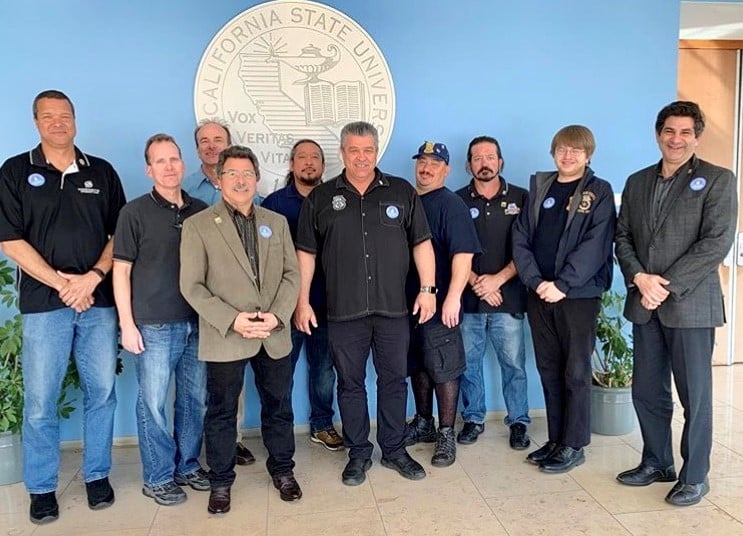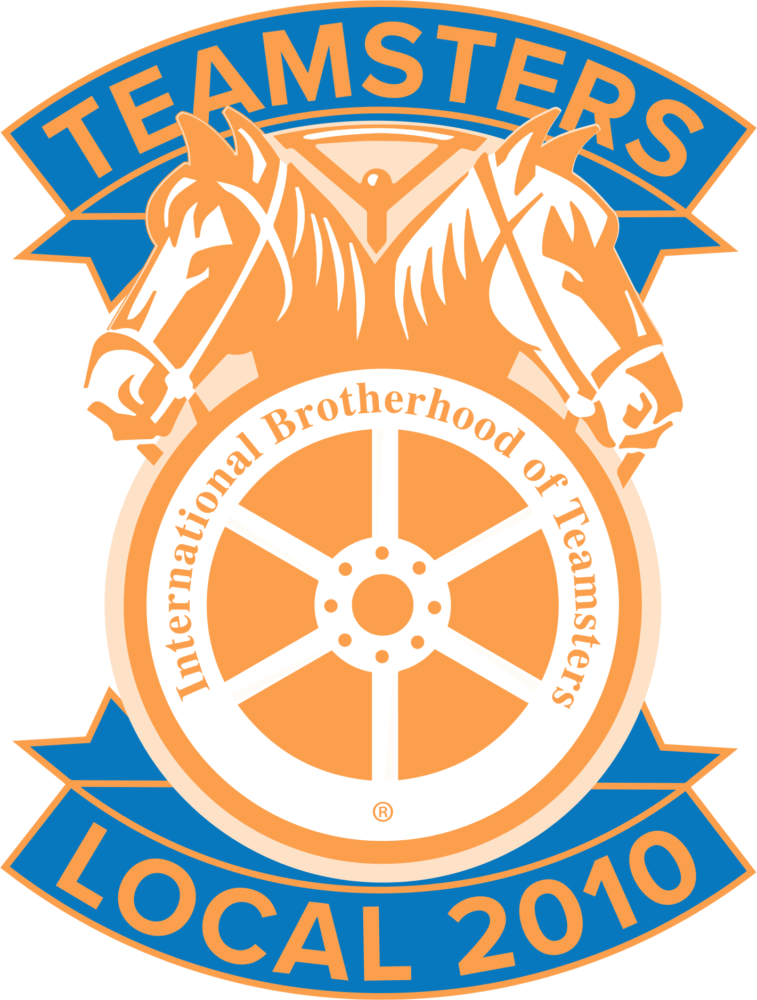
Teamsters Win Contract Extension that Protects Pay Rates and Benefits
Look for Voting Instructions to Come Soon
Our Teamsters 2010 Bargaining Team has reached a Tentative Agreement with the CSU that protects us from cuts to our current contractual wage rates and benefits for two years, and gives our Union the option to reopen negotiations on wages and benefits if the CSU’s base state funding for either upcoming fiscal year is higher than the 2019/2020 year. Members will be asked to vote on the Tentative Agreement shortly. We will work to make sure all our members are able to safely vote given the restrictions in place due to the pandemic.
Our CSU Skilled Trades Bargaining Team had been hard at work bargaining a successor to the current collective bargaining agreement with the CSU that expires on June 30, but contract negotiations were interrupted when the COVID-19 pandemic hit California. With a large cuts in the state budget, losses in revenue and increased costs for CSU due to COVID-19, and major cuts to the amount of state money allocated to the CSU already announced, it is important that we have a contract in effect that protects us from reductions in pay or benefits. In previous times of budget cuts, the CSU has bargained to impasse and unilaterally imposed long-lasting changes in compensation, an example of which was their unilateral elimination of salary step increases for many CSU employees.
Since the CSU proposed putting far more of the burden of health, dental and vision premium contributions on our members during negotiations in early February, our Bargaining Team feels this contract extension will provide solid protection to our members during extremely uncertain times by preventing unilateral changes to pay rates and benefits.
If approved by the membership, our contract will extend through June 30, 2022, and will incorporate articles agreed to by the two teams prior to the coronavirus crisis. The contract extension also allows our team to continue meeting with management on salary structure. We will keep pushing to bring back fair salary steps and address other pay issues for the duration of this extension.
Our contract extension aligns with a recent extension signed by our sisters and brothers in CSUEU, which is critical to ensure we can continue working with them to win back salary steps; the agreement also gives Teamsters – not the CSU – the ability to reopen wages and benefits if the CSU’s state funding improves.
View the Tentative Agreement by clicking here.

Back to Work Info and FAQ for Teamsters Working at CSU
CSU Teamsters, as campuses have been calling members back to work, we want to make sure you have the latest information available, answer some questions about new workplace policies related to COVID-19, and address misinformation that has been circulating about returning to work. If you haven’t looked already, we have been compiling resources and CSU policies on our website here.
With the CSU Non-Telecommuting Workers Leave (NTWL) expiring at the end of the month and a growing number of campuses calling everyone back to work, some members have been told they have to return to work or use their own accrued paid time off to remain on leave regardless of whether they have utilized other available leave programs. To be clear, while the NTWL program is expiring, both the leave program for those who are 65 and older or have certain chronic health conditions and the Coronavirus Paid Administration Leave (CPAL) programs continue through the end of the year. Please note that if you have been on NTWL, you must have used all available leave under CPAL already.
In addition, Federal law under the Families First Coronavirus Response Act (FFCRA) provides up to an additional 80 hours paid sick leave and up to 12 weeks of a combination of paid/unpaid family and medical leave for those unable to work or telework for qualifying COVID-19 related reasons. These leave programs are also available through the end of the year. For more details, you can view a detailed comparison chart of the leave programs here.
We encourage everyone to review the leave options that are available if you haven’t already and utilize them if needed before the end of the year. These important programs should be utilized to help protect your health and safety, as well as your ability to provide care and support for your family in these challenging times.
Below we address some frequently asked questions regarding returning to work and workplace policies that are being or could be implemented across the CSU campuses:
Can employees be disciplined for refusing to wear a mask?
Yes. Because the CDC has recommended the use of masks or face coverings, and because they are required by many county orders, arbitrators would uphold discipline for employees who refuse (absent extraordinary circumstances). The Union will, however, bargain with the CSU and attempt to ensure that our members are not subject to discipline for failing to wear a mask if the issue is corrected.
Can an employee refuse to work if the CSU does not provide a mask, does not require employees or others to wear masks, does not provide adequate PPE, or enforce physical distancing protocols?
Refusal to work is insubordination and should be used as a last resort only if an employee considers the conditions life threatening. Best addressed by obeying order and grieving. If you are 65 or older or have a chronic health condition that makes you more vulnerable to the virus, please click the link to “Read All FAQs” below and see the answer to question 5.
Can the CSU take temperatures of all employees prior to the start of their shift and/or require them to answer daily questions related to their recent health?
Yes, many employers have already implemented such a process, and some counties require it. The CDC has recommended it and the Equal Employment Opportunity Commission (EEOC) has stated that it does not violate the law. However, the Union can demand bargaining regarding any policy related to temperature checks or daily questionnaires to (1) ensure that the questions are not unnecessarily invasive, (2) the temperature checks are implemented in a safe manner with proper use of PPE and physical distancing, and (3) employees are paid for any time that they have to wait in line for the screening or filling out questionnaires.
